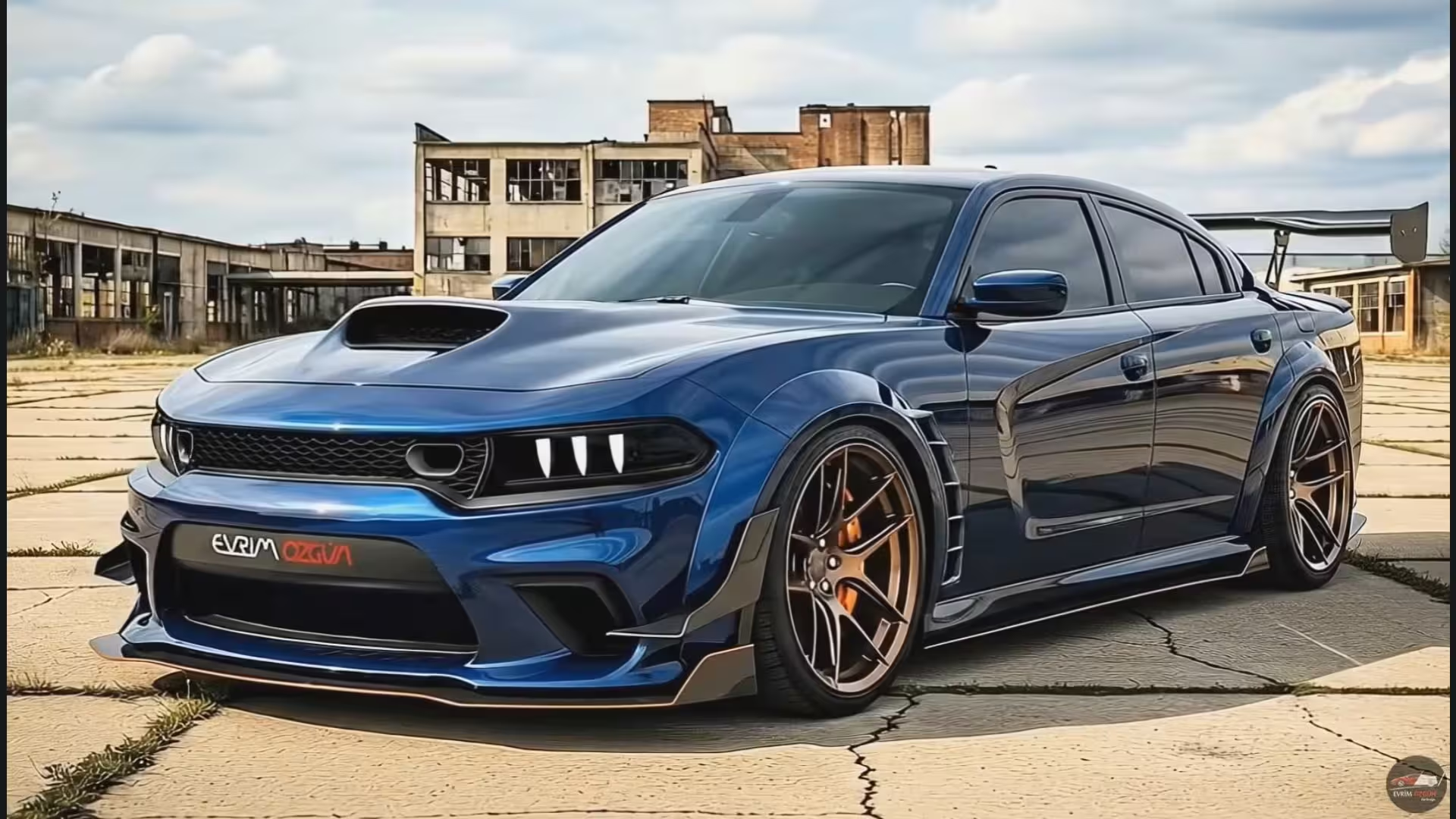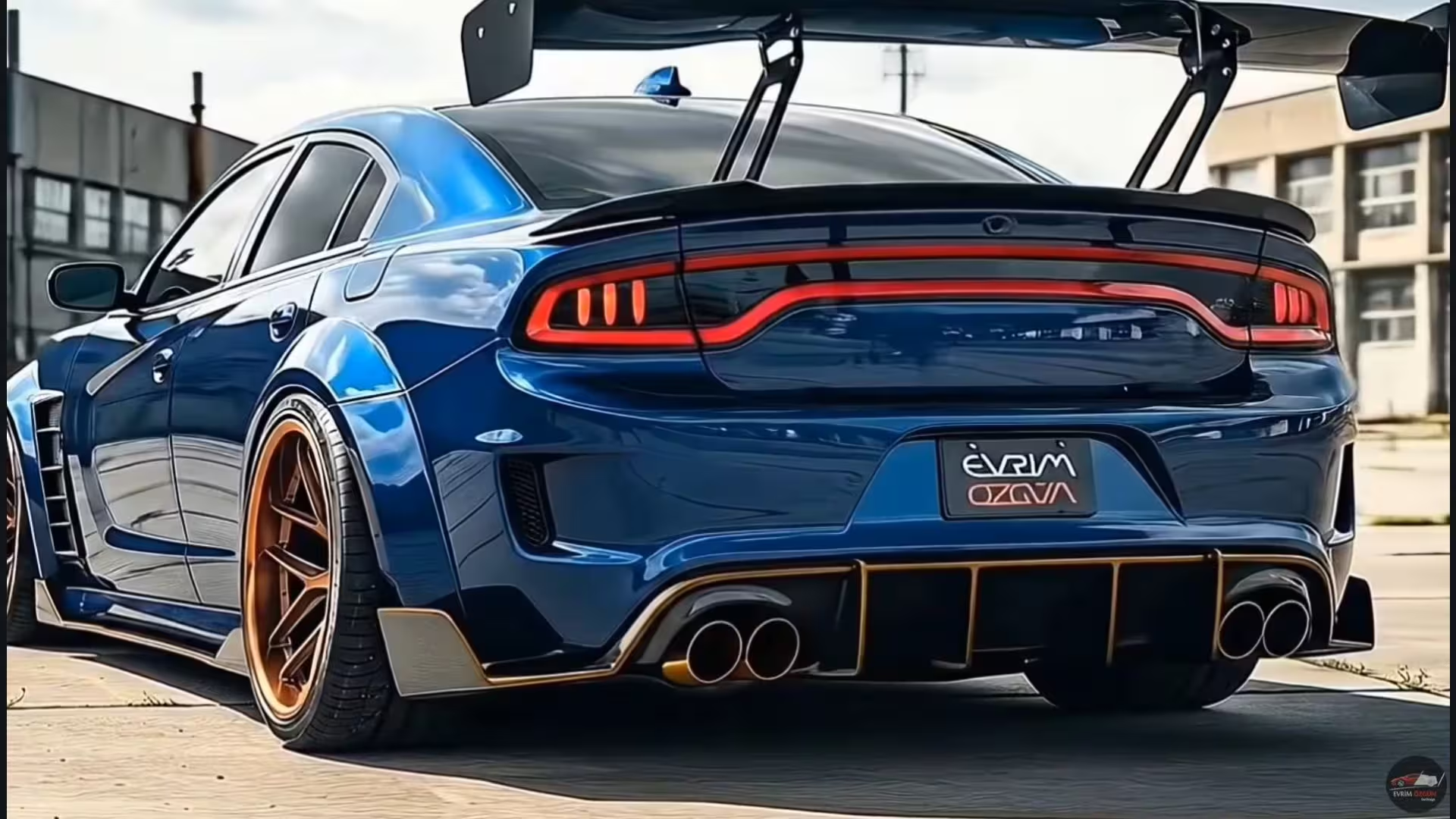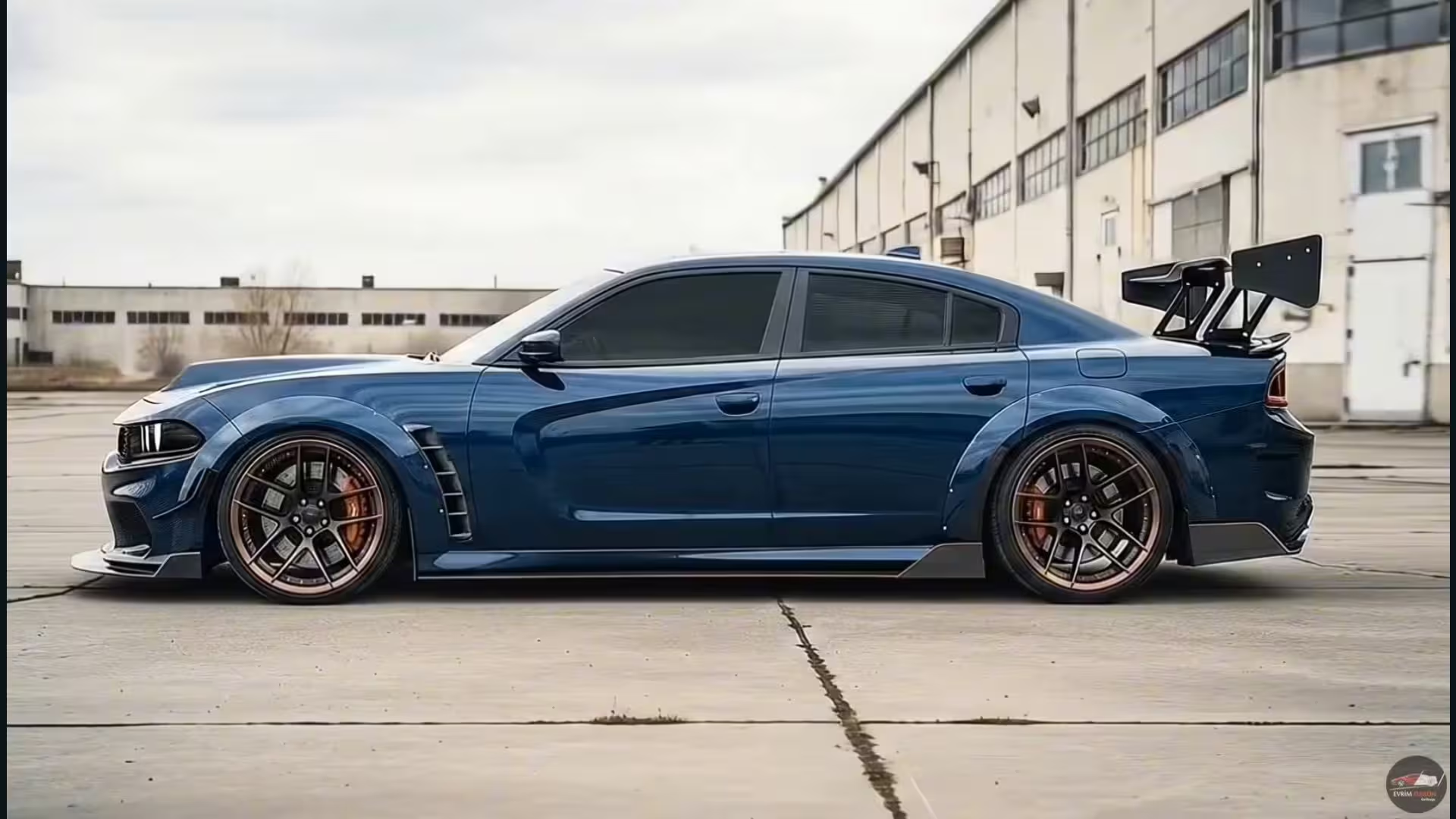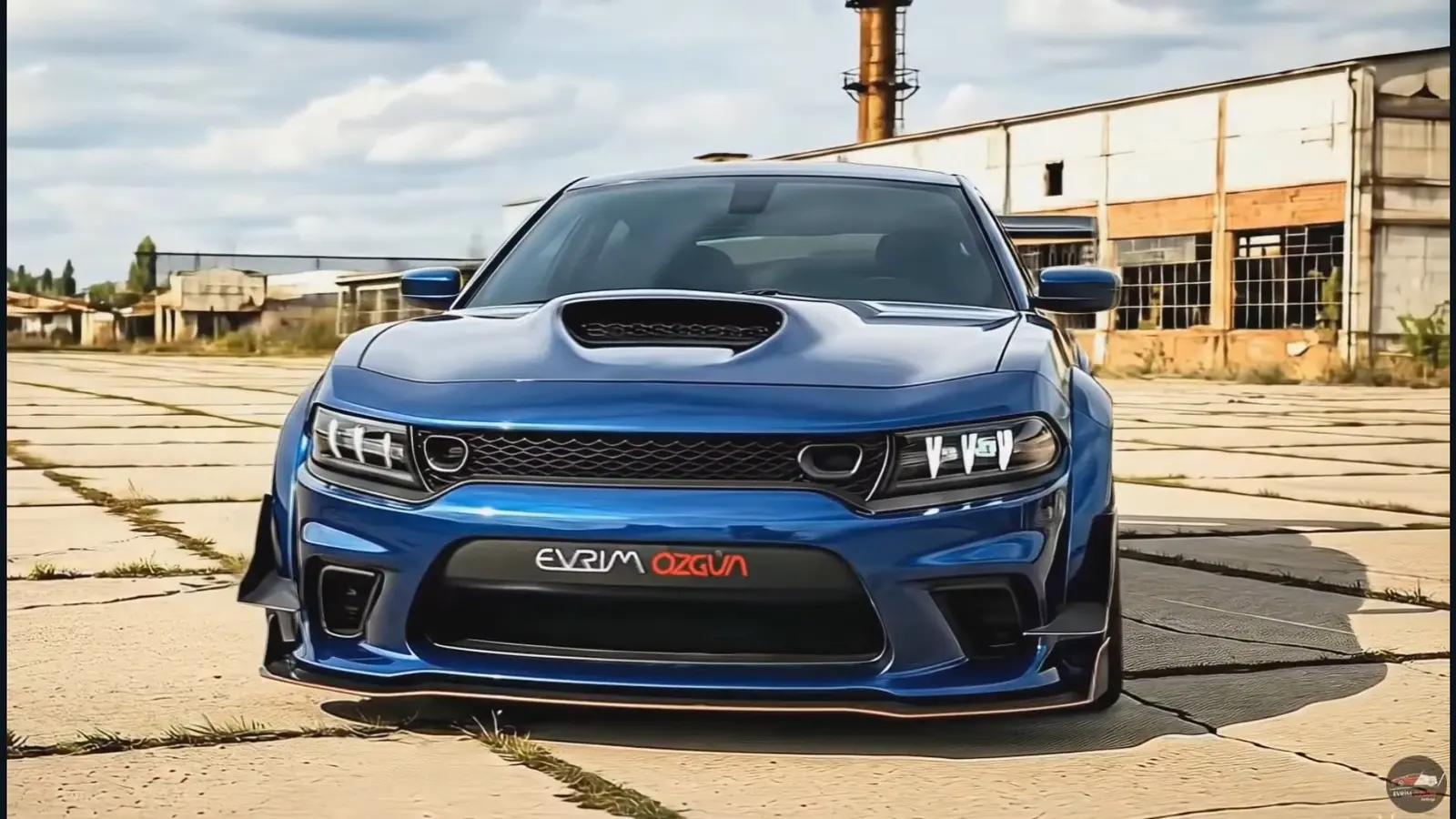4 Minutes
Virtual Tune Brings an L-Body Charger Hellcat Back to Life
The Dodge Charger SRT Hellcat has been reimagined in vivid CGI, receiving an aggressive widebody transformation that blends retro muscle-car attitude with modern aerodynamic detailing. Created by Turkish virtual designer Evrim Ozgun, the render captures a dark-blue, bronze-accented Charger that looks ready for both the strip and show circuit. While Stellantis' new eighth-generation, STLA Large-based Dodge Charger Daytona is the only production Charger currently on sale, digital tuners are keeping the ICE-era Charger legacy alive in pixels and imagination.
Design & Aero: Widebody Details That Steal the Show
Exterior styling
The concept applies an exaggerated widebody kit: beefy fender flares, new side sills, and a pronounced front bumper with large sculpted side air intakes. Visual highlights include a fresh hood scoop, triple LED daytime-running lights, a bronze-tinted lip spoiler, and high canards mounted on the flares. U-shaped aftermarket alloy wheels feature bronze accents and hide red Brembo calipers — a classic performance cue.
Rear treatment & aero bits
At the rear, the digital Charger sports a low lip spoiler plus a substantial high wing, a bronze-hued diffuser with integrated dual exhaust outlets, and small bumper inlets. Taillights repeat the three-claw LED motif, while a subtle trunk spoiler balances the aggressive rear wing for a purposeful look that recalls old-school Daytona aerodynamics.

Vehicle Specifications (Concept)
Although this is an unofficial digital exercise, the project is unmistakably Hellcat-themed, implying a 6.2-liter supercharged Hemi V8 under the hood. As a CGI concept the designer is free to imagine power beyond stock figures — typical Hellcat tune baselines range from roughly 700 hp in standard Hellcats to well over 800 hp for extreme builds. Key spec highlights implied by the design:
- Engine: virtual 6.2L supercharged Hemi V8
- Drivetrain: rear-wheel drive (classic Charger setup)
- Brakes: performance Brembo calipers
- Wheels: wide aftermarket alloys with high-offset fitment
- Aerodynamics: front canards, wide sills, diffuser, high wing
Performance and Tuning Potential
This CGI Charger signals heavy aftermarket potential: wider track, larger tires, upgraded brakes, and significant aerodynamic aids for high-speed stability. If translated into a real build, expect suspension reinforcements, enhanced cooling for the supercharger, and ECU tuning to exploit the larger intake and exhaust flow — all aimed at improving straight-line acceleration and track durability.

Market Positioning and Context
The render arrives at a time when the American sports car market is shifting. Sales data from January–June show the new Mustang (S650) at about 23,551 units (down ~14%) and the C8 Corvette at roughly 12,595 units (down ~30%), while legacy ICE Chargers and Challengers posted far smaller numbers. The older L-body Dodge Challenger delivered 1,501 units and the previous Charger sedan 1,630 units in the same period, compared with only 4,300 examples of the all-new eighth-generation Charger delivered in the first half of the year. These figures underline a market in transition toward electrification, with the STLA Large-based Dodge Charger Daytona representing Dodge's EV future — but digital creatives continue to celebrate internal-combustion icons.

Comparisons: Hellcat CGI vs. Contemporary Rivals
Compared with the S650 Ford Mustang and the mid-engine C8 Corvette, a digitally tuned Charger Hellcat emphasizes brute, straight-line force and retro muscle-car aesthetics rather than the nimble, road-course focus of the Corvette. The Mustang retains broader market appeal and higher volumes, while the Charger concept presented here leans heavily into bespoke widebody culture and high-horsepower heritage.
Final Thoughts
This virtual Charger is a love letter to ICE-era Mopar performance: muscular proportions, striking bronze accents, and purpose-driven aero. As a concept it asks a simple question to enthusiasts — would you welcome a real widebody Hellcat build like this? Yay or nay?
Source: autoevolution


Leave a Comment